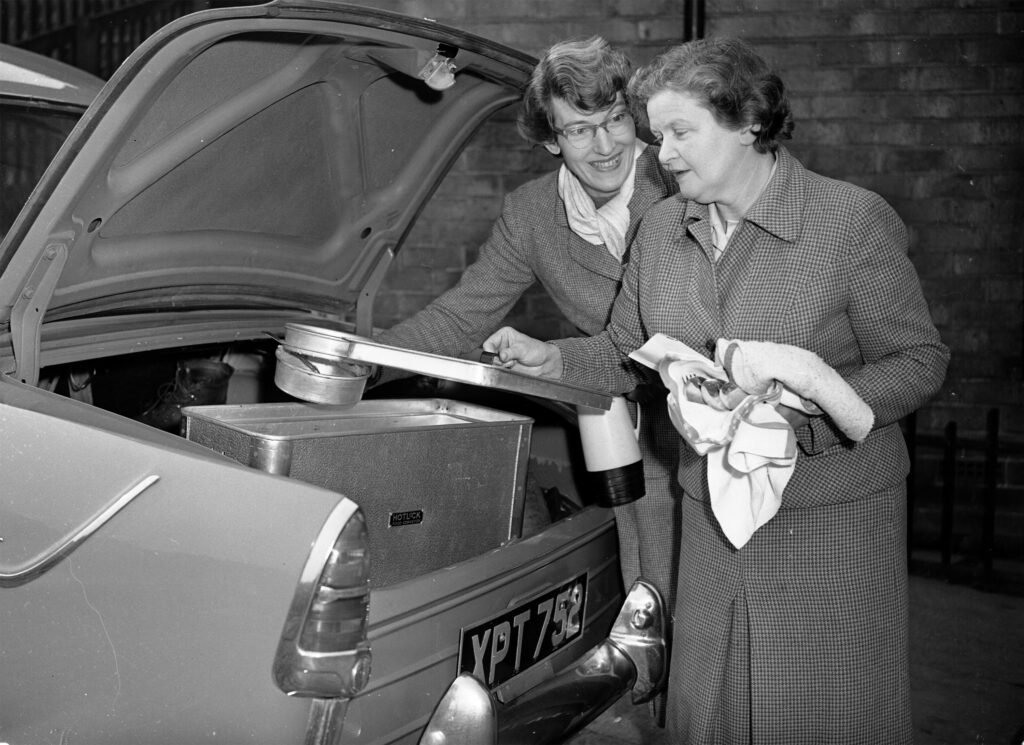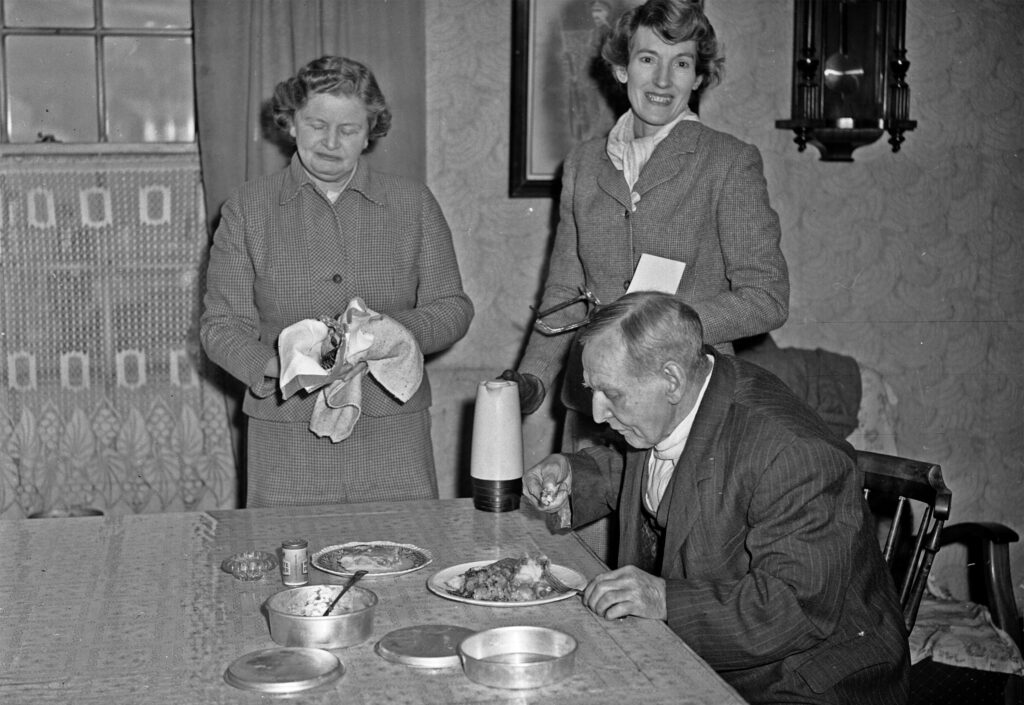As part of the research around our upcoming Aged Miners’ Homes in our 1950s Town, Connor Emerson, Remaking Beamish Engagement Development Officer, has been looking into the provision of delivered meals for elderly people.
The story of Meals on Wheels in Sunderland starts in the early 1950s. After a call from the Minister of Health, Hilary Marquand, to “care for the feeding of old people…”, the Sunderland Old People’s Welfare Committee applied for a licence from the Ministry of Food to make food deliveries, and was granted this on Tuesday, 8th January 1952.

Meals on Wheels from Dryburn Hospital going out to the community in Durham. Taken 9th March 1959.
On 14th January, the first meals from the scheme in Sunderland were distributed to 15 retired sailors, who lived in the Aged Merchant Seamen’s Homes. This quickly grew and, by 26th January, the Meals on Wheels scheme was delivering over 600 lunches per week to the elderly and infirm from a single electric van on loan from an engineering works. It appears that a converted ambulance quickly superseded this van.
By April 1953, Mr J Fox-Williams, secretary of the committee, had come to an arrangement with the Sunderland Education Committee to use school kitchens to increase the capacity of the service, and put in motion a plan for a second vehicle to help with deliveries. By October of 1953, this second vehicle had started its service. It had been specifically built to be used for the Meals on Wheels scheme, and came complete with food container compartments and served the hot meals it carried through fold-back doors at the rear.

We know that there were numerous other Meals on Wheels services throughout the 1950s in the North East, often run by the Women’s Voluntary Service (WVS). This included services in Tynemouth and Hartlepool. The service in Tynemouth provided a two course meal in 1955 for 1s 2d! In 1959, the Darlington Meals on Wheels service run by the WVS was even visited by Lady Dorothy Macmillian, wife of then Prime Minister Harold Macmillian. There was also a service in Durham City, as documented in photographs from the Durham Advertiser. In the photos you can see a Hot-Lock container – a device that used charcoal to keep up to eight meals hot whilst they were out on deliveries.
